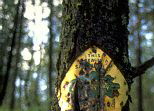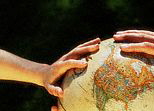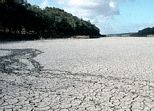May
30-31
BIOECON
workshop on "Property-related mechanisms for
biodiversity conservation" to be held in
Rome (Italy) on 30-31 May 2002. Download the Workshop
Announcement and Call for Papers
by right-clicking the highlighted link and choose
"save as…".
September
6-7 2001
The
Centre for Law and the Environment (Faculty of
Laws) in collaboration with CSERGE and the
Department of Economics of University College
London will be hosting "The
Workshop on the Law & Economics of
Environmental Policy".
The
workshop will take place on the 6th
and 7th of September 2001. The agenda
and papers of the meeting can be downloaded by
clicking on the files below:
AGENDA
- LONDON SYMPOSIUM
Important
Notices
1)
The papers will be published in Research in Law
and Economics. Please download the GUIDELINES
FOR AUTHORS
document for instructions on how to edit
your paper for publication.
2)
The Environmental Law division of Cambridge
University Press is offering discounted purchases
of its publications to all workshop participants.
Details
can be found at their web-site at: http://uk.cambridge.org/law/environmental/intro.htm
but will also be provided at the workshop.

On
May 14th -15th 2001 CSERGE
hosted the first plenary meeting of the BIOECON
project. The meeting was attended by all
BIOECON partners as well as members from policy
forums participating in the project (Word Bank,
IUCN, RFF, IIED, WWF). Details of the meeting can
be found at the BIOECON web-page at www.bioecon.ucl.ac.uk

The
Centre for Cultural Economics and Management
(CCEM)
On
February 2nd 2001 the Centre for
Cultural Economics and Management organised a
one-day seminar on the economic valuation of
cultural heritage. With reference to diverse
studies undertaken by members of the centre the
seminar addressed the following questions: Should
society attach economic values to cultural
heritage? If so by what means should this be
done? How can so doing improve decision-making?
How can we place values on non-marketable goods
(like the appearance of a building) or intangible
assets (like authenticity)? How may damage to
historical heritage be valued and how can
projects aimed at repairing restoring or
renovating cultural heritage be appraised? What
insights does economic valuation bring to the
question of charging for entry to museums and
galleries? Downloads of the papers given at the
presentation are available from the CCEM web site
http://www.ccem.org
|







